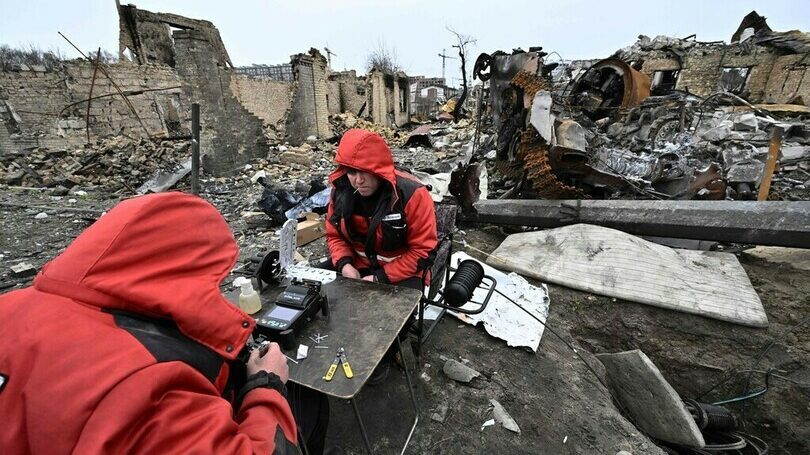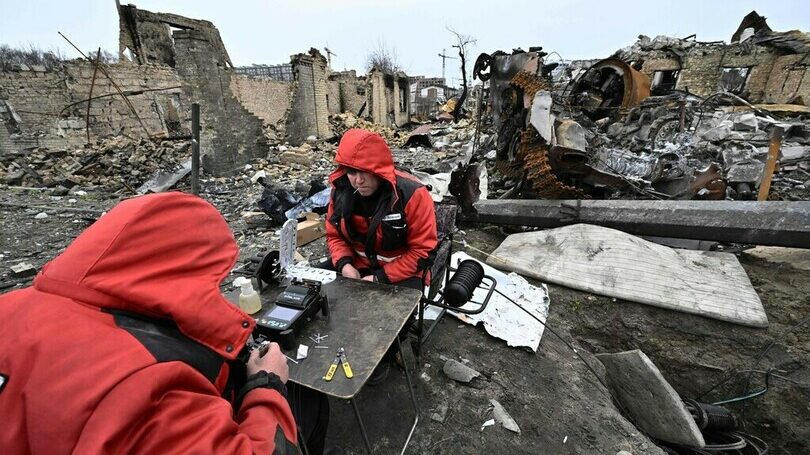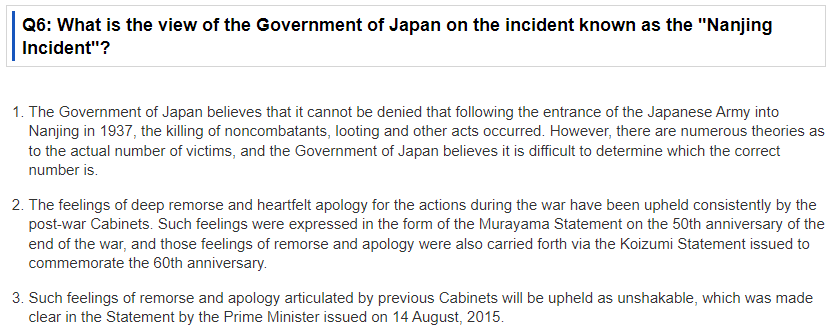Japan’s Suspected Intention Not to Join the UN Genocide Convention

The tragedy continues in Ukraine. The deaths of civilians caught up in war evoke deep sorrow in people of all nations. In particular, the Bucha massacre in March 2022, in which many civilians are believed to have been victims of the massacre, has drawn criticism from around the world against Russia, which is allegedly caused the tragedy.
(figure: Collapsed town of Bucha)

(source: AFP)
Japan is no exception. Chief Cabinet Secretary Matsuno issued a statement condemning the incident as a war crime. However, did you know that a question has been raised behind Japan’s response to this incident?
Why Japan has not ratified the “Genocide Convention”? The “Genocide Convention” refers to the Convention on the Prevention and Punishment of the Crime of Genocide, which was enacted by the UN General Assembly in 1951. Japan is not a signatory to this Convention. The 138 countries are participating in this convention, which prevents the destruction of “national, racial, ethnic or religious groups. What on earth is going on? The answer may lie in Japan’s past conduct.
First, as a premise, the Japanese government’s answer to the above question is as follows:
“because no domestic laws have been enacted to prevent genocide, etc.”
Under the Genocide Convention, state parties are obliged to deal with the occurrence of genocide and punish its perpetrators under domestic law. Since Japan does not have such a law to deal with genocide yet, and even if it were to accede to the Genocide Convention, it is unclear whether it would be effective, so it has not acceded to the Convention. In addition, Chapter I of the Genocide Convention states.
The text of the treaty states that the State Parties undertake to confirm, prevent and punish collective killings, whether committed in times of peace or in times of war. In other words, to prevent genocide, whether in peacetime or wartime, the parties are required to take action, and since such action is expected to involve military force, some believe that Japan, whose Constitution prohibits the use of force, has not ratified the treaty because it is unable to comply with the provisions of the treaty.
These reasons are all persuasive. However, another theory is being whispered among Japanese government officials. It is said to be related to a certain incident in Japan’s history.
In 1937, Japan, which was at war with China, caused an incident in the city of Nanjing. During the occupation of the city, the Japanese military at the time committed massacres, assaults, arson, and other acts against civilians and prisoners of war, the so-called “Nanjing Incident. After the war, the Japanese government has continued to view the incident as “undeniable,” and it continues to be recognized as an actual incident that took place in the past, as shown by its inclusion in textbooks. If the Japanese government were to join the Genocide Convention, it would naturally bring into focus the genocide committed by its own country in the past.
The Japanese government may be reluctant to touch the Genocide Convention, not only because of historical issues, but also because it could easily spill over into contemporary international political relations, such as China’s oppression of Tibetan and other ethnic minorities.
(figure: Ministry of Foreign Affairs’ Explanation of Past Incidents)

(source: MOFA HP)
Genocide, the brutal killing of innocent people, is unforgivable. However, the world is still dominated by the political balance of power, and what path should Japan, in the midst of such a balance of power, take in the future? How will Japan, one of the world’s leading economic powers, deal with these issues in the future? The world is watching.
Hiroto HARIMA
Analyst, Global Intelligence Group (GIG)



